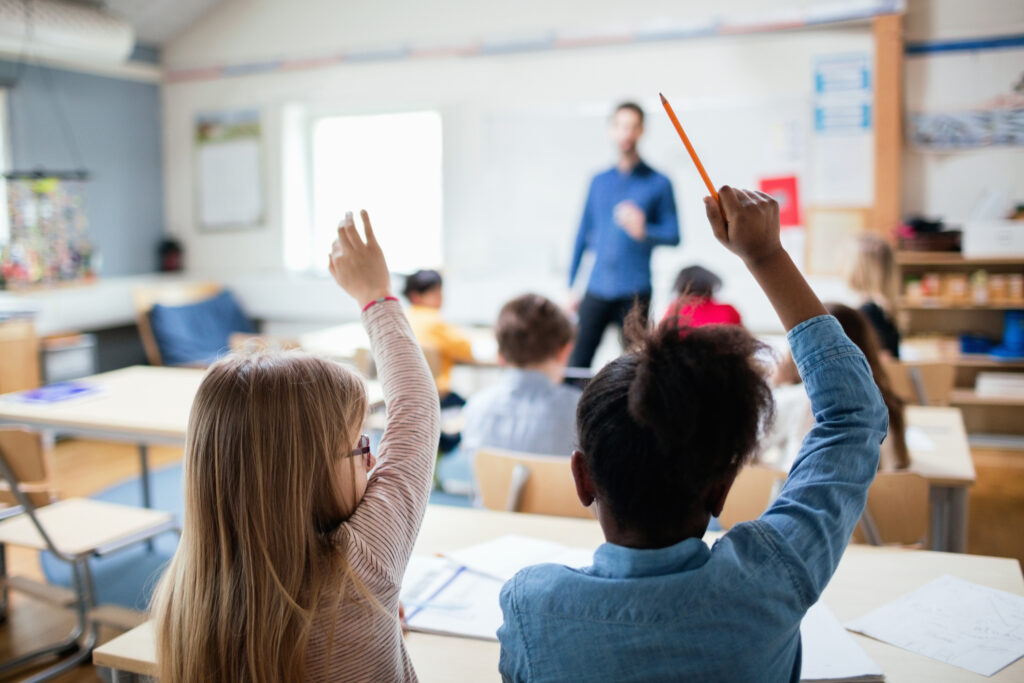Self-esteem is a critical aspect of an individual’s mental and emotional well-being, serving as the bedrock for self-worth and influencing behavior, decisions, and relationships. One of the most significant contributors to the development of self-esteem is education. In this comprehensive guide, we will delve into the intricate relationship between education and self-esteem, exploring How Education Helps In Establishing Self Esteem establish this vital component of personal growth and well-being.
How Education Helps In Establishing Self Esteem: Unveiling the Foundations
1. Providing Knowledge and Skills:
Education acts as a powerful vehicle for imparting knowledge and skills that individuals can harness to achieve their goals. The process of learning new things instills a sense of accomplishment and pride, fostering increased self-confidence and self-esteem. As individuals gain expertise, they are more likely to view themselves positively and engage more confidently in various endeavors.
2. Increasing Self-Confidence:
Learning is a journey of self-discovery, where individuals acquire new skills and knowledge. This continuous process enhances self-assurance, contributing to a more positive self-image. The more individuals believe in their abilities, the more likely they are to embrace challenges and explore new opportunities, further elevating their self-esteem.
3. Allowing Individuals to Set and Achieve Goals:
Education provides a structured platform for individuals to set and accomplish goals. Working towards realistic and attainable objectives fosters a sense of accomplishment and self-worth. The perseverance, determination, and resilience developed during this journey contribute significantly to healthy self-esteem.
4. Improving Social Skills:
Beyond academic achievements, education plays a pivotal role in shaping an individual’s social skills. Interactions with peers and teachers provide opportunities for communication, collaboration, and leadership development. These enhanced social skills contribute to increased confidence in social situations, fostering positive relationships and, consequently, higher self-esteem.
5. Promoting Lifelong Learning:
Education is not confined to a specific phase of life; it is a lifelong process. Continuously engaging in learning activities sustains a sense of purpose and accomplishment, positively impacting self-esteem. The pursuit of knowledge and personal growth throughout life reinforces the idea that learning is a lifelong journey, contributing to sustained self-esteem.
What Does Self-Esteem Mean In Education? Understanding the Dynamics
Self-Esteem in Education:
In an educational context, self-esteem refers to the level of confidence, skill, and learning strategy a student possesses. Recognizing its pivotal role, schools must prioritize nurturing students’ self-esteem, as it directly influences motivation, mental health, and the ability to engage in lifelong learning.
Effective Strategies in Education:
Research highlights a positive correlation between education and self-esteem. Various strategies and interventions, such as self-regulated and emotional learning, have proven effective in supporting students’ sense of belonging and social skills. Journals in psychology and education offer evidence-based approaches for educators to promote self-esteem in students.
How to Develop Self-Esteem In Education? [Effective Tips]
- Encourage Skill Development:
Educators should actively encourage students to engage in activities that enhance their skills and abilities. Feeling competent and skilled in their pursuits significantly contributes to the development of self-esteem.
2. Provide Social Support:
Creating a supportive environment where students feel valued and included is crucial. Positive relationships and a sense of belonging are foundational to high self-esteem.
3. Foster Intrinsic Motivation:
Focusing on intrinsic motivation—engaging in activities for their inherent enjoyment rather than external rewards—helps build sustained self-esteem. Educators can provide opportunities for autonomy, competence, and relatedness to foster intrinsic motivation.
4. Use Positive Feedback:
Regular, specific, and supportive positive feedback reinforces positive behaviors and accomplishments, enhancing self-esteem. Recognizing and acknowledging students’ efforts contribute to a positive self-image.
5. Teach Self-Regulation:
Skills such as mindfulness and emotion regulation contribute to an individual’s ability to regulate their emotions and behavior. Educators can play a role in teaching these skills, promoting higher self-esteem among students.
Effective Strategies for Overcoming Self-Esteem Challenges in Education
Despite the challenges that may arise, there are effective strategies to overcome self-esteem hurdles in education.
1. Develop Social Skills:
Actively engaging in clubs or groups with shared interests fosters the development of social skills, helping students build connections and boost self-esteem.
2. Focus on Lifelong Learning:
Prioritizing continuous learning throughout life cultivates a growth mindset, ensuring individuals stay motivated and build self-esteem.
3. Seek Intervention:
In cases of self-esteem challenges, seeking intervention from school staff, such as counselors or teachers, can provide effective programs to build self-esteem.
4. Practice Self-Care:
Maintaining good mental health through self-care activities, such as exercise, meditation, and spending time with loved ones, is essential for building and maintaining self-esteem.
5. Find Motivation:
Intrinsic motivation, deriving enjoyment or interest from activities without external rewards, is crucial for building and maintaining self-esteem in the educational journey.
The Role Of Teachers And Parents In Nurturing Self-Esteem In Students And Children
Teachers and parents play a pivotal role in shaping and maintaining children’s self-esteem. The following strategies can guide them in this essential endeavor:
1. Providing a Supportive Environment:
Creating a safe space where students and children feel comfortable expressing themselves and taking risks is foundational to nurturing self-esteem. Positive feedback and praise for achievements, no matter how small, contribute significantly.
2. Encouraging Autonomy:
Empowering students and children with choices and decisions fosters a sense of control and ownership, leading to increased self-esteem.
3. Setting Realistic Expectations:
Balancing challenges and attainability in goals ensures that students and children develop competence and confidence, positively impacting self-esteem.
4. Fostering Positive Self-Talk:
Modeling and encouraging positive self-talk helps students and children develop a healthier inner dialogue, reinforcing a positive self-image.
5. Emphasizing Effort Over Outcome:
Celebrating effort and hard work, rather than solely focusing on grades or performance, contributes to the development of a growth mindset and pride in accomplishments.
Wrapping Up: The Transformative Power of Education on Self-Esteem
In conclusion, education is a transformative force in establishing and maintaining self-esteem. It empowers individuals with knowledge, skills, and a sense of accomplishment, fostering confidence and resilience. As students, parents, and educators collaborate to prioritize effective strategies, the educational journey becomes a powerful tool in promoting lifelong self-esteem and personal development. By understanding and harnessing the connection between education and self-esteem, we pave the way for a future where individuals can confidently navigate the complexities of life with a strong sense of self-worth and purpose.













